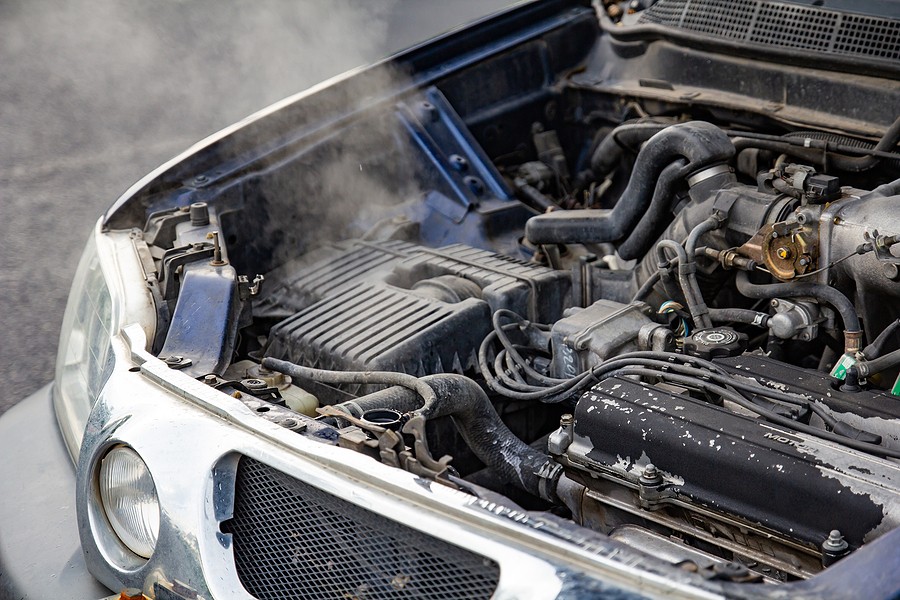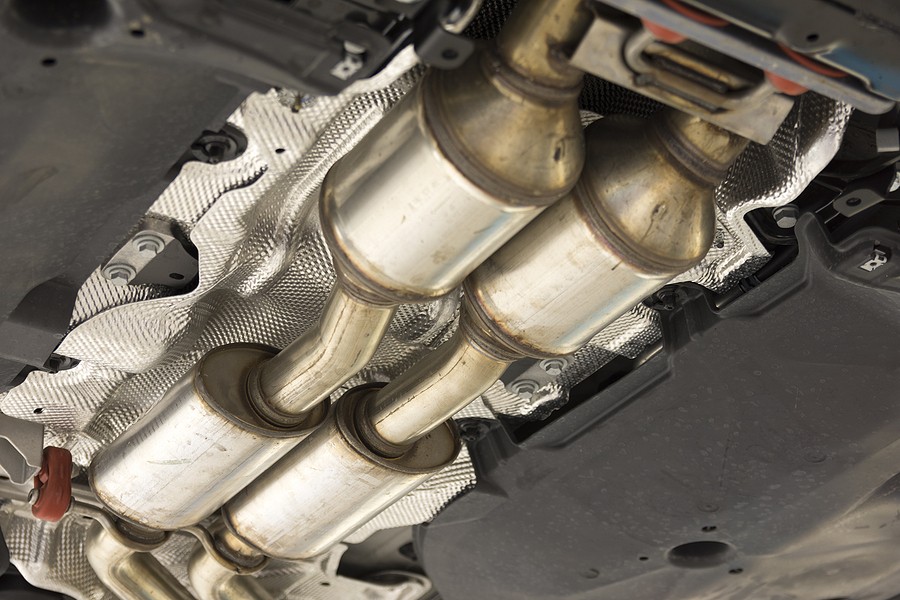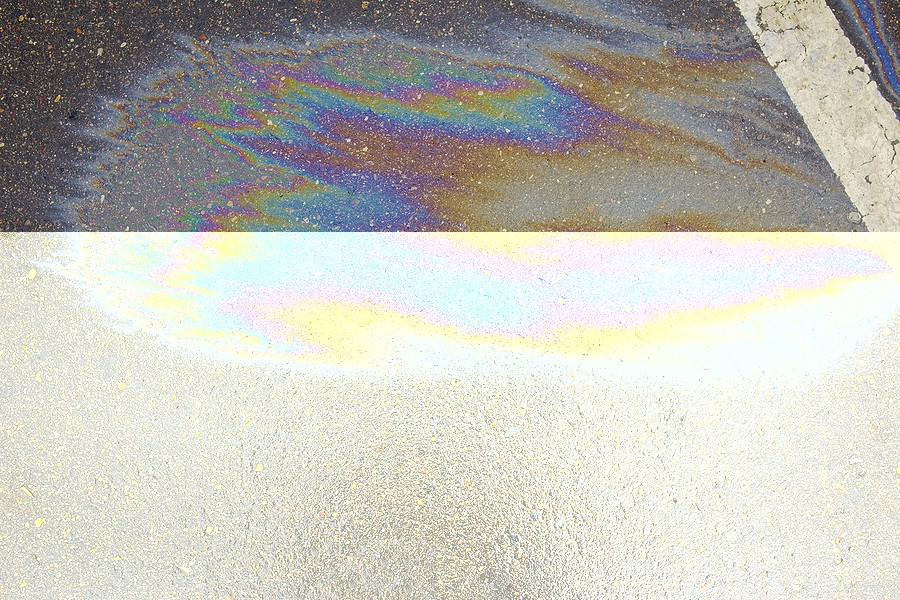It's not a good feeling when you notice that your car is leaking coolant. Of course, you know that it could be from something as simple as a loose hose clamp or as bad as a cracked head gasket, but either way, the repairs will cost money and take time.
The worst part about this problem is there's no guarantee of what you'll find when you finally open up the engine compartment. What if the leak is coming from an expensive part? It would have been better to spend some time working on preventative maintenance so you wouldn't have to worry about these things now! However, we've got some tips for handling leaks should they occur.

What is the car coolant, and what does it do?
Your vehicle's coolant, also known as antifreeze, is essential for your engine's health and performance. Coolant prevents the motor from overheating and freezing during cold weather, and it lubricates the engine's moving parts. It also absorbs heat from the combustion chamber.
What car is coolant made up of?
Water makes up 50% to 70% of your vehicle's antifreeze, but rust inhibitors and other ingredients are also added. These include glycol ethers, silicates, nitrates, or other organic compounds. In addition to these antioxidants, corrosion inhibitors such as phosphates or borates also help suppress rust from forming metal pieces within the cooling system even if exposed to air. Antifreeze itself becomes more viscous in colder temperatures, so coolant freeze points vary depending on climate specifications by region/state/province.
What to do if you detect a car coolant leak?
Here are some steps you can take before getting a full diagnosis from an ASE-certified technician:

1. Have the vehicle checked by a professional
An experienced mechanic will detect where exactly the coolant is leaking from, and they may even have a solution that doesn't involve replacement parts or labor. In any event, having a pro check it out first will save time and money in the long run.
2. Add more antifreeze/water mixture to top off your cooling system
You'll want to raise the engine's temperature so it heats up and melts away any ice buildup inside your radiator or core, at which point you can shut the vehicle off. Any liquid that spills out will be mostly water, so you can see absorption by adding more coolant to it or using a wet vacuum. One quart should do the trick for most cars and trucks if you have no idea how much coolant/water mix to pour in.
3. Keep your engine running as long as possible
As long as your car is on, liquid forced by gravity into the overflow tank will eventually make its way down into your radiator. So even if you're stuck with an overheating engine because of a bad head gasket, there's at least some chance that antifreeze can drip from the open cooling ports on top of your cylinder head instead of having to find another route inside.
4. Be careful if you're driving a rear-wheel-drive vehicle
If there's a leak in the radiator, coolant will only flow forward to the front of your car, where it can escape into the atmosphere or mix with water from humidity and rain. In this case, your engine will overheat much faster because it has no way of cooling off!
5. Have the system flushed at the first sign of trouble
While you'll want to do this whether or not you have an overheating issue, flushing may also be necessary to remove any potentially corrosive deposits left behind by leaking coolant that evaporated out of your cooling system.
From a mechanical standpoint, removal of these contaminants could extend the life of major components inside the car's cooling system because it'll get rid of any particles stuck to various surfaces.
6. If you've got money to burn, replacements are available
Depending on where the leak is coming from and other factors that mechanics will want to examine in person, there may be ways to stop a coolant leak without replacing costly components such as radiator hoses or clamps.
However, if your engine gets too hot because of a bad head gasket, for example, it could damage seals that prevent oil from leaking into the combustion chambers. That's why a professional diagnosis is always recommended before undertaking repairs!
You don't have time to wait around once you detect a problem with your car's coolant, so hopefully, at least one of the above methods will save you from a very costly and time-consuming ordeal.
Even if you don't have any money to spare, adding water as a stopgap measure will make it easier for an ASE technician to diagnose your vehicle's problem since they'll be able to see where the leak is coming from with their own eyes.
Don't forget – aside from antifreeze; corrosion inhibitors are another essential component of engine coolant that helps prevent rusting on metal parts which could then cause leaks. Suppose your radiator or cylinder head has already rusted or corroded away due to a bad seal caused by neglect. In that case, repairs may only cost more later on once you've wasted all that money on invalid repairs!

What are the consequences of not fixing a car coolant leak?
Ignoring the coolant leak is never a good idea. If the engine overheats, it can cause serious damage to various components inside your car. Some of which are very pricey when they have to be replaced.
The best advice in this situation is to drive your car safely to a mechanic. They can test the car and see where the leak is coming from. Once they find it, it will be up to you what the best course of action is because every car and every customer is different.
As an example, here are the common consequences of not fixing a car coolant leak:
1. Engine overheating
The number one consequence of a car coolant leak is an overheating engine. Engine overheats when the liquid flow in the cooling system is restricted due to the lack of coolant.
When this happens, your car's engine will not shed heat as efficiently, which can lead to permanent damage or, worst-case scenario, a blown head gasket.
2. Rusts and corrosion
Another consequence of neglecting a car coolant leak is the possibility of corrosion. Corrosion happens when rust forms on metal components inside your vehicle. This can be especially bad when the rust forms around bolts and clamps that hold your car's components in place.
It can become very dangerous when this happens since the bolts holding your car parts may snap.
3. Car overheating and breakdowns
When an engine suffers from long bouts of overheating, it affects the engine and other components inside your vehicle.
For example, you may experience problems with car overheating, causing the coolant level indicator to stop working. Other times, this may cause other gauges in your car's dashboard to malfunction.

3. Water in fuel
Water in fuel can happen when your car's radiator is leaking. The water may mix with the oil inside your engine, making it thicker. This can cause your car to use more oil than usual.
4. Water pump failure
Another bad side effect of not fixing a car coolant leak is the possibility of the water pump failing.
When this happens, it can cause the coolant inside the engine can leak and require a new water pump.
If you've ever had a water pump fail, you know that this is something you should avoid at all costs.
5. Radiator failure
When the radiator is leaking, it can cause the coolant inside to leak.
This will affect how well your radiator can cool your engine, resulting in your radiator eventually failing.
6. Transmission damage
Overheating the engine may also damage your transmission. This can be especially bad if it happens on a long road trip.
When this happens, you will have fun trying to find a mechanic who can fix your car. Unfortunately, by this time, the damage from the overheating may be so bad that it will cost more to fix than what the car is worth.
7. Catalytic converter damage
When the engine overheats, it can cause damage to the catalytic converter. Catalytic converters convert hazardous gases inside a car's engine into nonhazardous substances.
Overheating the engine may damage this component, requiring you to spend money on both parts and labor for a new catalytic converter.

8. Head gasket failure
A coolant leak can also impact the head gasket. The head gasket is the seal between your engine's cylinder head and the engine block.
When you suspect that your car leaks, the first place to check are the head gasket, a quick way to test if your car's head gasket may be failing is by checking the coolant level. If the coolant is at a normal level, but you detect a sweet smell coming from your car's exhaust, this may indicate a head gasket failure.
9. Low coolant warning light comes on
If a liquid cooling system loses a significant amount of coolant, the low coolant warning light may come on.
This can be an indication that there is a leak in your cooling system. This may be the only symptom you will notice before completely overheating your engine.
10. Gurgling noises from the engine
Did you know that a coolant leak might result in strange engine noises? Sometimes, a coolant or water pump leak can result in gurgling noises.
Depending on where the liquid is flowing inside your vehicle, it can result in bubbling sounds.
How to prevent car coolant leaks?
Since coolant leak is a critical problem, automotive experts did intensive research to provide drivers with important recommendations on preventing a car coolant leak. Let's take a closer look below:

Don't overfill the coolant reservoir
Some car owners make a common mistake by filling their engine's coolant reservoir.
According to car experts, this is not necessary. If you put too much coolant inside your engine, it can leak a car coolant.
Check your car's coolant level regularly.
One of the most important ways to prevent a car coolant leak is to regularly check your car's coolant level.
It is recommended to do this every two weeks if you use the car sparingly. However, if you drive the car daily, it is recommended to check once a week.
Changing your engine's coolant
Another great way to prevent a car coolant leak is by changing your engine's coolant when needed.
If you are unsure when it was the last time you had changed it, then it is recommended that you change the liquid at least every four years or 60k miles. This depends on what type of coolant your vehicle needs and how severe leaks are in your area. Check the owner's manual for more information on this process because different models have different recommended service schedules.
Get a cooling system flush.
Car experts recommend getting a cooling system flush when changing the coolant in your vehicle.
This helps remove any dirt or deposits inside your car's engine that may have built up over time. In addition, this helps prevent future car coolant leaks because it prevents corrosion from taking place inside your engine, resulting in problems with the seal between cylinders and the head.
Use genuine parts for repairs.
Using cheap generic parts to fix an issue with your car is never recommended by automotive experts, even if they are inexpensive.
The problem is that these types of products are not designed specifically to work well with each other, so it can result in having to do unnecessary repairs soon after
Conclusion
Detecting a car coolant leak can be alarming, but it's important to stay calm and take the necessary steps to prevent your engine from overheating. In this article, we have outlined some of the most common symptoms of a car coolant leak and ways that you can prevent them from happening in the first place. If you are ever unsure about what to do if you detect a car coolant leak, please reach out to an automotive expert for assistance.



